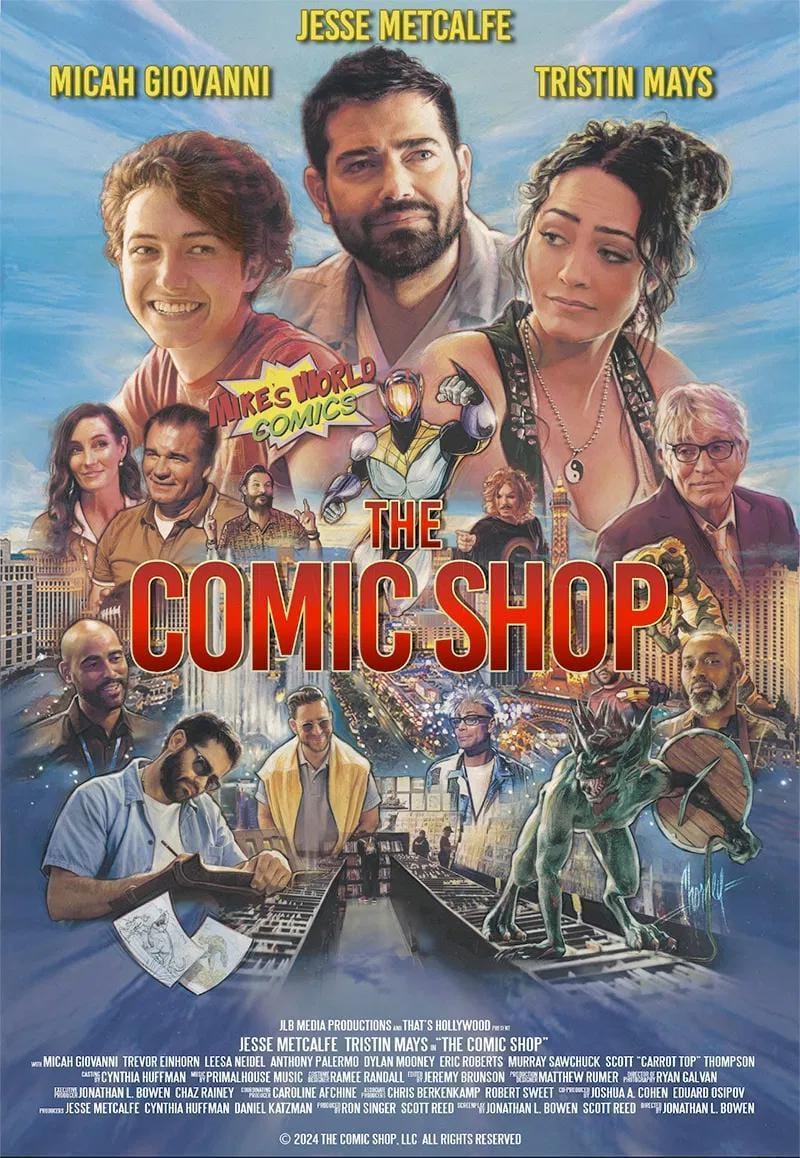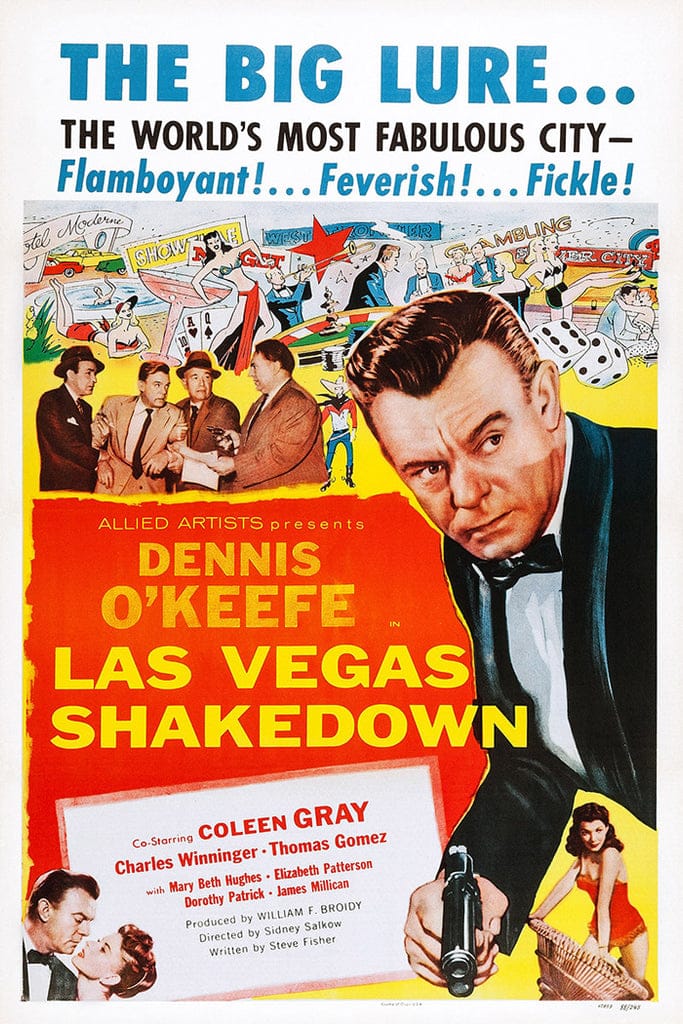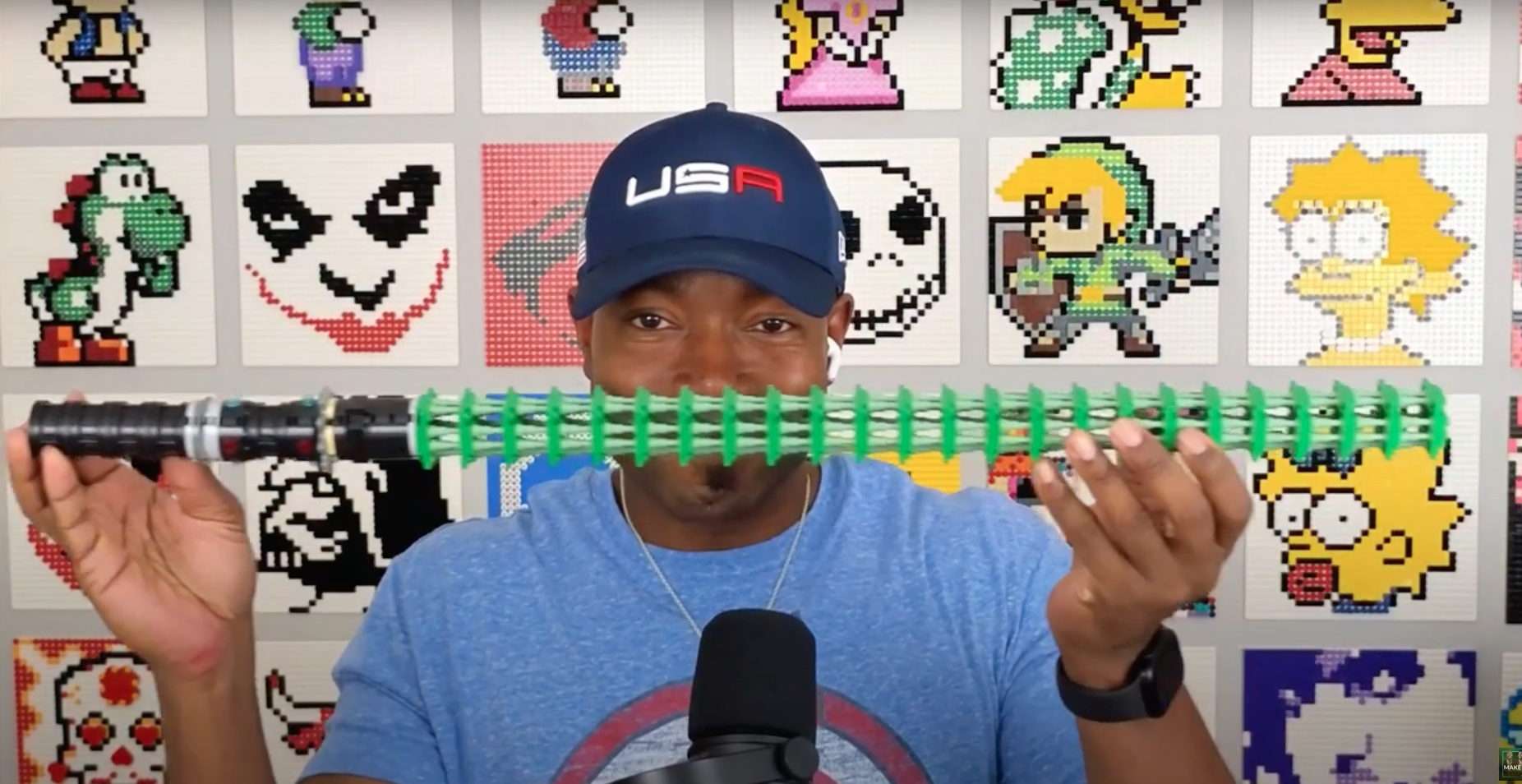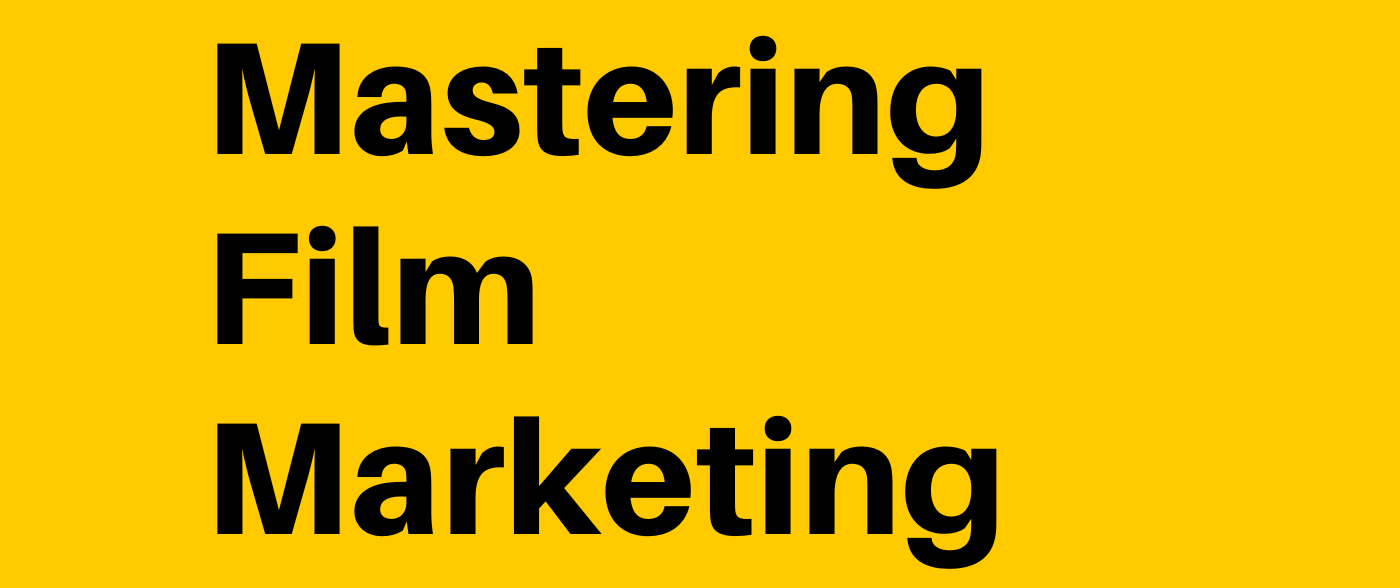Making It in Indie Film: Lessons from Jonathan Bowen and The Comic Shop
Introduction: The Indie Filmmaker’s Dilemma
The landscape of making movies is both exhilarating and daunting. The dream of seeing your story on the big screen is alive and well, but the path is littered with obstacles—financial, creative, and personal. In a world dominated by studio blockbusters and streaming giants, how do you carve out your own space, tell authentic stories, and build a loyal audience?
That’s exactly what the latest episode of The Make It Podcast explores, featuring a candid, insightful, and often hilarious conversation with filmmaker Jonathan Bowen. From his early days running fan sites to directing heartfelt indie films like The Comic Shop, Jonathan’s journey is a masterclass in perseverance, creativity, and the art of “making it” on your own terms.
In the next few minutes, we’ll break down the most valuable lessons from the episode—designed to educate, entertain, and inspire you on your own filmmaking journey. Whether you’re an aspiring director, a seasoned producer, or a creative soul looking for your next spark, you’ll find something here to fuel your passion.
The Creative Journey: From Fan Sites to Feature Films
Jonathan Bowen’s story is anything but conventional. Before he was a filmmaker, he was a superfan—so much so that he ran fan sites for celebrities like Vin Diesel and Jennifer Love Hewitt. “I’ll be honest, it was purely about the money,” Jonathan laughs, recalling the early days of the internet when affiliate links and poster sales could actually pay the bills.
But it was this entrepreneurial spirit and love for storytelling that eventually led him to filmmaking. His first feature, Amy Alyson Fans, is a romantic comedy inspired by his own experiences running fan sites. The premise? A struggling actor launches a fan site for his own girlfriend—without telling her. It’s a hilarious, heartfelt look at ambition, love, and the weirdness of internet culture.
Jonathan’s latest film, The Comic Shop, is even more personal. Set in Las Vegas, it tells the story of Mike, a would-be comic artist who ends up running a struggling comic shop after giving up on his dreams. The film is a blend of real-life inspiration and creative fiction, exploring what happens when Plan B starts to fall apart—and how passion can reignite even in the darkest moments.
Takeaway: Your creative journey doesn’t have to be linear. Embrace your unique path, draw from your own experiences, and don’t be afraid to tell stories that are close to home.

Indie vs. Studio: Playing a Different Game
One of the most powerful moments in the episode comes when Jonathan is asked how indie filmmakers can make their movies feel as “must-see” as studio releases—without the massive marketing machine.
“Honestly, I would argue that you can’t, and that’s okay,” Jonathan says. “You need to define your audience and your niche. Don’t try to make a studio movie on a smaller budget. Play your own game—do something they can’t or won’t do.”
This is a crucial insight for any filmmaker feeling overwhelmed by the competition. Studios have the money, the reach, and the resources to dominate the box office. But indie filmmakers have something just as valuable: the freedom to take risks, tell controversial stories, and connect with niche audiences in ways studios can’t.
Takeaway: Don’t compete with studios on their terms. Find your unique voice, embrace your limitations, and create films that only you can make.
Building an Audience: Community, Connection, and 1000 True Fans
In today’s attention economy, building a loyal audience is more important than ever. But how do you do it as an indie filmmaker?
Jonathan shares his own approach: “I have a stealth Instagram account I’m building for a future movie. The idea is to build a sense of community there, because these are the exact people who will like the movie. I keep it very focused to that specific thing.”
The conversation also touches on Kevin Kelly’s famous “1000 True Fans” concept—the idea that you don’t need millions of followers to succeed. If you can find 1,000 people who will buy everything you create, you can make a living as a creator.
The hosts discuss the importance of engaging with your audience beyond just promoting your work. Share your process, let people into your life, and keep things positive. In a world where social media can be divisive, authenticity and connection go a long way.
Takeaway: Focus on building a genuine community around your work. Engage with your audience, share your journey, and remember that a small, dedicated fanbase can be more valuable than a massive, disengaged one.
Marketing Indie Films: Bundling, Buzz, and the Power of Polls
Marketing is often the Achilles’ heel of indie filmmakers. Without a big budget, how do you get your film in front of the right people?
The episode offers some creative solutions. One idea: bundle your indie film with more mainstream projects. If you have a notable actor who’s also in a blockbuster, promote both together. Leverage the star’s existing fanbase to draw attention to your indie project.
Chris and Nick also discuss the value of audience polls and data. By running polls on their platform, they gain insights into how people discover new indie films—whether it’s through YouTube critics, social media buzz, or film festivals. This data helps shape their marketing strategies and ensures they’re reaching the right audience.
Takeaway: Get creative with your marketing. Bundle your film with bigger projects, use audience data to guide your strategy, and don’t be afraid to experiment with new approaches.
Local Impact: Telling Authentic Stories from Your Community
For Jonathan, being a “Vegas filmmaker” is a point of pride. “I want that to be part of my persona—that my movies are set in Vegas, but they’re not The Hangover. I want to show the real world beyond the tourist corridor.”
The Comic Shop is a love letter to the local community, highlighting the everyday struggles and triumphs of people who rarely make it into Hollywood movies. Jonathan hopes his film will inspire others—especially those in the 35–55 age range—to pursue their passions, no matter where they are in life.
The Things We Should Know segment offered a fun trivia segment about Las Vegas film history, revealing that the first movie shot entirely in the city was Las Vegas Shakedown (1955), filmed at the legendary El Rancho Vegas Hotel.

Takeaway: Don’t underestimate the power of local stories. By shining a light on your own community, you can create films that resonate deeply with audiences and leave a lasting impact.
Practical Advice: Balancing Art, Money, and Meaning
One of the biggest challenges for indie filmmakers is balancing financial sustainability with creative fulfillment. Jonathan is candid about the struggle: “You have to find some way to carve out time when you can. Make a date with yourself, even if it’s just three hours on a Saturday. If you don’t, the weeks will pass.”
He emphasizes the importance of daily creative habits, even if it’s just writing for five minutes a day. “Don’t let the fire die. You’ll find that it has effects, like the effects it has on Mike in The Comic Shop. I noticed that happening to me, where I just felt listless. The right attitude is always to put in the work and know that tomorrow will come.”
Chris and Nick echo this sentiment, sharing their own routines and the value of giving yourself grace. Whether it’s floating in a pool, taking long walks, or jotting down ideas in the shower, find what works for you and stick with it.
Takeaway: Make time for your art, even when life gets busy. Small, consistent efforts add up—and can keep your creative spark alive.
The Power of Authenticity: Advice to Live By
As the episode draws to a close, Jonathan shares the piece of advice he lives by: “To thine own self be true. There’s always going to be people who don’t like you or what you do. It doesn’t matter. You have to really be yourself—not in a corny way, but present the version of yourself that’s most you, not the one you think people want.”
This theme of authenticity runs throughout the conversation, from the stories Jonathan tells to the way he engages with his audience. In a world obsessed with trends and algorithms, staying true to yourself is the ultimate act of creative courage.
Takeaway: Be unapologetically yourself. Your unique voice is your greatest asset as a filmmaker.
Entertaining Moments: Lightsabers, Legos, and Laughs
Of course, it wouldn’t be The Make It Podcast without some laughs. The episode is filled with entertaining moments—like the reveal of a custom Lego lightsaber, debates about the best cheat day meal (pizza loaded with toppings, anyone?), and a running gag about the perils of over-intellectualizing film trivia.
There’s also a lively discussion about favorite films, guilty pleasures, and the movies everyone loves that you just can’t stand. (Jonathan’s pick? There Will Be Blood—controversial, but honest!)
These moments of humor and camaraderie remind us that filmmaking is as much about community and connection as it is about art.

Call to Action: Listen, Watch, and Join the Conversation
If you’re looking for inspiration, practical advice, and a healthy dose of entertainment, you won’t want to miss this episode of The Make It Podcast. Jonathan Bowen’s journey is proof that you don’t need Hollywood’s blessing to make meaningful, impactful films—you just need passion, perseverance, and a willingness to play your own game.
Ready to dive deeper? Listen to or watch the full episode on your favorite podcast app or YouTube. Join the conversation, share your own journey, and become part of a community that celebrates indie film and creative courage.
Final Thoughts
Making it in film isn’t about fame, fortune, or awards—it’s about telling stories that matter, building a community around your work, and staying true to your creative vision. Whether you’re just starting out or looking to take your filmmaking to the next level, remember: your journey is uniquely yours, and the world needs your voice.
So grab your camera, rally your crew, and start making the movies only you can make. And don’t forget to tune in to The Make It Podcast for more stories, insights, and inspiration from filmmakers who are doing just that.
Share your thoughts in the comments, and let us know what topics you’d like to see covered in future episodes!

